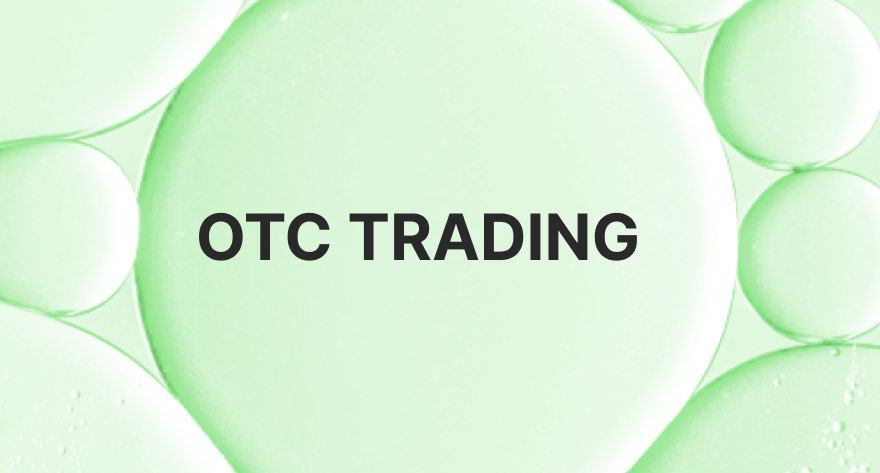The fiscal world is vast and intricate, with exchanges like the New York Stock Exchange (NYSE) serving as prominent landmarks. But beyond these well-examined paths lies another reality: the Over-the-Counter (OTC) market.
Often surrounded by mystery, the OTC market plays a crucial role in facilitating trades for a wide range of securities. This guide aims to demystify the OTC market, equipping you with the knowledge to navigate its unique characteristics.

A Market Without Walls
Unlike traditional exchanges with a centralised location and standardised trading hours, the OTC market functions in a decentralised manner. Imagine a network of dealers acting as intermediaries, connecting buyers and sellers directly. These transactions occur electronically, bypassing the formal listing requirements of major exchanges. This “off-exchange” environment offers distinct advantages for both companies and investors.
Types of Securities Traded in the OTC Market
The OTC market is versatile, accommodating a wide range of securities, including but not limited to:
Equity Securities
These include shares of smaller companies, often called “penny stocks,” which are not listed on major exchanges. Companies trading OTC might be in the early stages of development, financially distressed, or simply prefer the less stringent reporting requirements of the OTC market.
Debt Instruments
The OTC market is a significant venue for trading various debt securities such as corporate bonds, government securities, and other forms of fixed-income instruments. These debt instruments often offer more attractive yields than those available on traditional exchanges.
Derivatives
The OTC market actively trades derivatives such as options, swaps, and forward contracts. These financial instruments derive their value from an underlying asset, such as stocks, bonds, commodities, or interest rates.
Foreign Exchange (Forex) and Commodities
The OTC market is the primary market for trading Forex and certain commodities. Unlike exchange-traded commodities, OTC commodities are often customised contracts catering to the trading parties’ specific needs.
Structure and Tiers of the OTC Market
The OTC market is organised into different tiers, each catering to different types of securities and varying levels of investor risk:
OTCQX
This is the top tier of the OTC market, known for higher transparency and financial reporting standards. Companies listed here are generally more established and provide investors with reliable information, making them a safer bet compared to other OTC tiers.
OTCQB
Known as the venture market, OTCQB is tailored for early-stage and developing companies. Companies listed in this tier are required to be current in their reporting to the SEC, which provides a level of security for investors, albeit less than OTCQX.
Pink Market
Often referred to as Pink Sheets, this tier includes a wide variety of companies, from those in distress to those that prefer to remain private. The Pink Market has minimal regulatory oversight, which presents both opportunities and risks for investors.
Grey Market
Securities traded in the Grey Market are not listed on any OTC or exchange markets. This market lacks transparency, and trading is infrequent, making it a high-risk environment for investors.
Advantages of Trading in the OTC Market
Despite its risks, the OTC market offers several advantages:
- The OTC market allows smaller companies to access capital markets without the high costs associated with listing on a traditional exchange.
- OTC trading is less regulated, allowing for more tailored and flexible transactions. This flexibility can be beneficial for both issuers and investors, especially when dealing with complex financial instruments like derivatives.
- The OTC market provides liquidity for securities that might not have a large market on traditional exchanges. This includes everything from foreign stocks to specialised bonds and derivatives.
- Because OTC securities are often undervalued or in the early stages of their business lifecycle, there’s potential for significant appreciation, making them attractive to speculative investors.
Risks Involved in the OTC Market
While the OTC market offers many opportunities, it also comes with inherent risks. Many OTC securities are issued by companies that provide limited financial information. The lack of transparency makes it difficult for investors to assess the value and risk of these securities accurately.
OTC securities, particularly those in the lower tiers, often suffer from low trading volumes. This can make it difficult to buy or sell securities without affecting their price. The prices of OTC securities can be more volatile than those traded on major exchanges. This volatility can be attributed to lower liquidity, limited information, and the higher risk profile of the companies involved.
The OTC market is less regulated than traditional exchanges, which can expose investors to fraudulent activities, including pump-and-dump schemes.
How to Trade in the OTC Market
Trading in the OTC market requires careful consideration and often involves using a broker specialising in OTC securities. Investors should conduct thorough due diligence, including researching the financial health of the company, understanding the specific risks of the security, and being aware of the market conditions that could affect trading.
To navigate the OTC market safely, investors should:
- Research the company’s background, financials, and management team before investing. Look for red flags like limited financial disclosures or a history of questionable business practices.
- Consider consulting with a financial advisor experienced in OTC markets for personalised investment advice.
- Limit your initial investment in OTC stocks and diversify your portfolio across different asset classes to mitigate risk.
- Be wary of unsolicited calls or emails promoting specific OTC stocks.
Conclusion
The OTC market plays a crucial role in the global financial system, offering a trading platform for a wide variety of securities that might not find a place on traditional exchanges. While it provides unique opportunities, especially for speculative investments, it also requires a deep understanding of the involved threats. Investors interested in the OTC market should approach it with caution and conduct thorough research.
| Disclaimer: The text above is an advertorial article that is not part of Coincu.com editorial content. |























